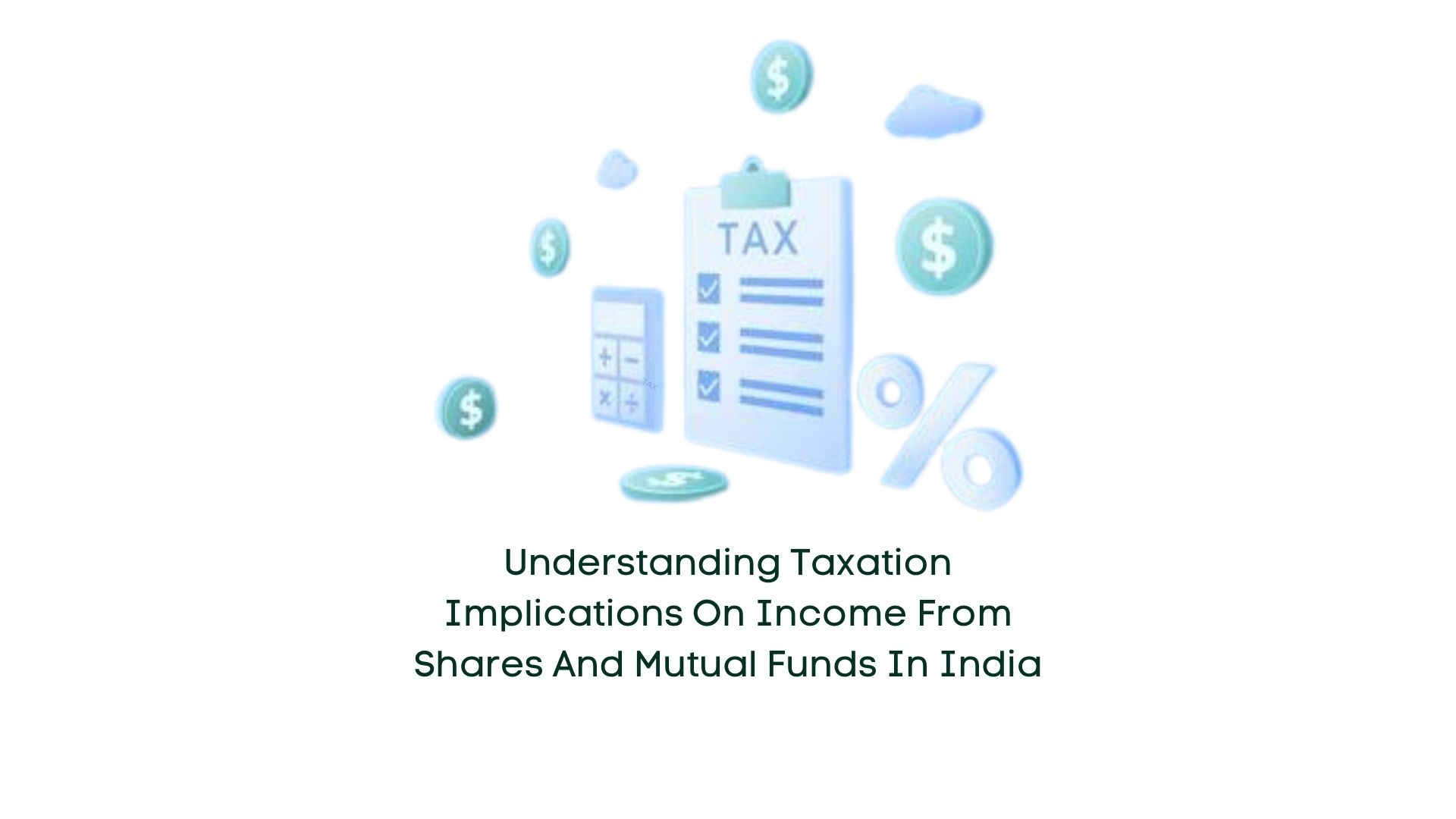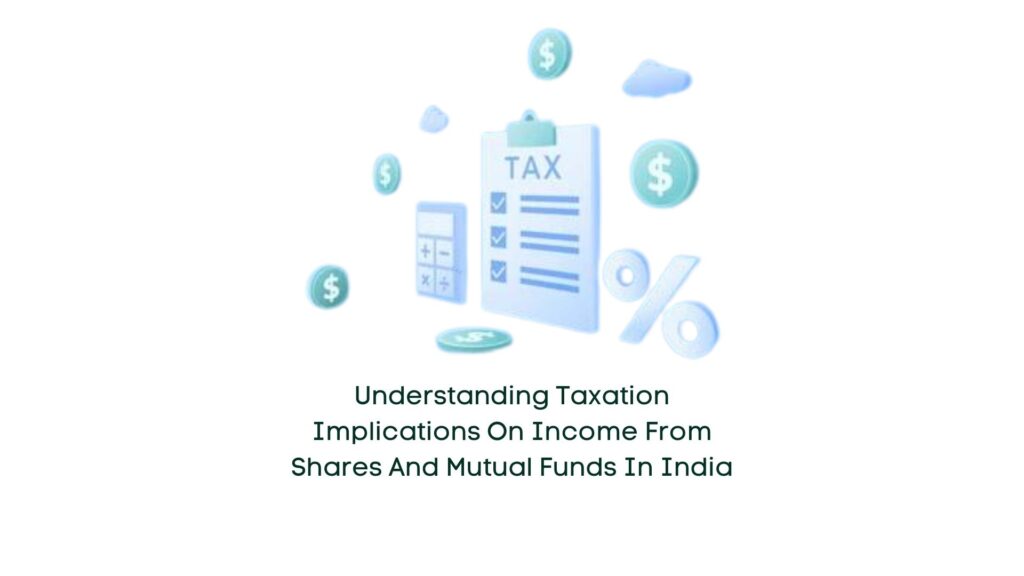
28 Feb Understanding Taxation Implications on Income from Shares and Mutual Funds in India

In India, the taxation of income from shares and mutual funds is a significant aspect often overlooked by many investors. While income from salary, rent, and business is widely known to be taxable, the taxation of returns from investments in shares and mutual funds remains less understood. In this article, we delve into the intricacies of how income from shares and mutual funds is taxed in India.
Earning Returns in Mutual Funds:
Returns in mutual funds primarily come in two forms: dividends and capital gains. Dividends are profits distributed by companies to investors, while capital gains are realized through the appreciation in the value of mutual fund units. Both dividends and capital gains are subject to taxation in the hands of investors.
Taxation of Mutual Funds:
Mutual funds have gained popularity as investment options due to their potential to help achieve financial goals and their tax efficiency compared to traditional investment avenues like fixed deposits. Since the Union Budget of 2020, dividends from mutual funds are now subject to ordinary taxation, added to the investor’s taxable income and taxed at their applicable income tax slab rates.
Taxation of Dividends and Capital Gains:
Dividends from mutual funds, which were previously exempt due to dividend distribution tax (DDT), are now taxable. Capital gains from mutual funds are taxed differently based on the holding period and the type of fund. Short-term capital gains are taxed at different rates compared to long-term capital gains. For equity funds, short-term gains are taxed at a flat rate of 15%, while long-term gains are exempt up to Rs 1 lakh annually, with a 10% tax on gains exceeding this limit.
Taxation of Capital Gains Through SIPs:
Systematic Investment Plans (SIPs) allow investors to periodically invest small amounts in mutual funds. Capital gains from SIPs are taxed based on the holding period of the mutual fund units acquired through the plan. Short-term gains are taxed at a flat rate of 15%, while long-term gains are exempt up to Rs 1 lakh annually.
Securities Transaction Tax (STT):
In addition to taxes on dividends and capital gains, investors are also subject to Securities Transaction Tax (STT) when buying or selling mutual fund units. STT is levied at a rate of 0.001% by the Ministry of Finance on transactions involving equity funds or hybrid equity-oriented funds.
Conclusion:
In conclusion, understanding the taxation implications of income from shares and mutual funds is crucial for investors to optimize their returns and minimize tax liabilities. Consulting with a knowledgeable investment advisor can assist investors in making informed decisions and navigating the complexities of taxation effectively.


No Comments